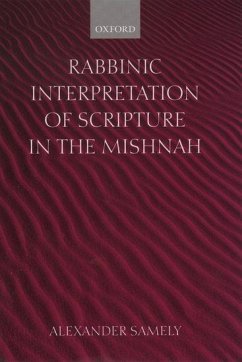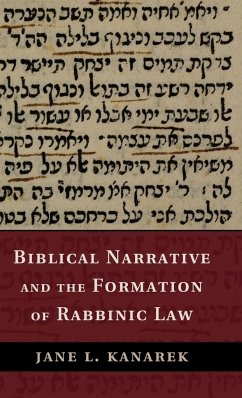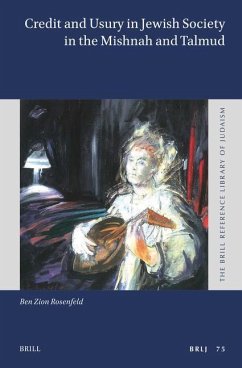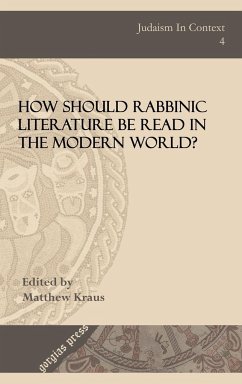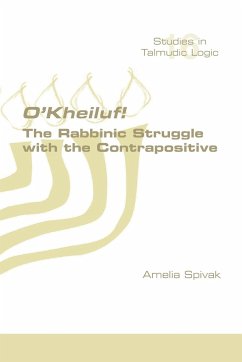
O'Kheiluf! The Rabbinic Struggle with the Contrapositive
Versandkostenfrei!
Versandfertig in 1-2 Wochen
27,99 €
inkl. MwSt.

PAYBACK Punkte
14 °P sammeln!
In this book Dr. Amelia Spivak uncovers a type of tannaitic argument that was lost: neither traditional nor academic scholars seem to have known of its existence. The author finds examples scattered across the range of tannaitic literature - including in well-trodden passages - suggesting that such argumentation was widely practiced. Spivak identifies a signaling Hebrew phrase, o'kheiluf, along with accompanying expressions as uniquely tannaitic logical terminology. The author lays bare how this precise tannaitic logic - none of which appears to be of Greek or Roman origin - operates and how i...
In this book Dr. Amelia Spivak uncovers a type of tannaitic argument that was lost: neither traditional nor academic scholars seem to have known of its existence. The author finds examples scattered across the range of tannaitic literature - including in well-trodden passages - suggesting that such argumentation was widely practiced. Spivak identifies a signaling Hebrew phrase, o'kheiluf, along with accompanying expressions as uniquely tannaitic logical terminology. The author lays bare how this precise tannaitic logic - none of which appears to be of Greek or Roman origin - operates and how it relates to the contrapositive. The o'kheiluf argument is shown to betray blanket ignorance of both Aristotelian and Stoic logic. The author offers reasons for why this form of argument died out in amoraic times. This book also serves as a persuasive argument for the use of modern logic as a tool for historical and literary investigations of rabbinic texts. Spivak identifies logical differences in the o'kheiluf arguments in the Midrash Halakhah of the R. Ishmael and R. Akiva schools and uses those as markers for attributing school affiliation to particular passages where authorship is contested. Using her study of the o'kheiluf the author is able to clarify a famously puzzling Mishnah, one that mystified the Bavli and Yerushalmi and even later commentaries on the Talmuds. Spivak also unravels what a popular passage in the Yerushalmi is really busy with when it tries to prove, contrary to the Torah, that a reptile is pure. She shows that this passage and its analog in the Bavli have been incorrectly understood and require the logic she exposes in the o'kheiluf argument for a proper rendering.



